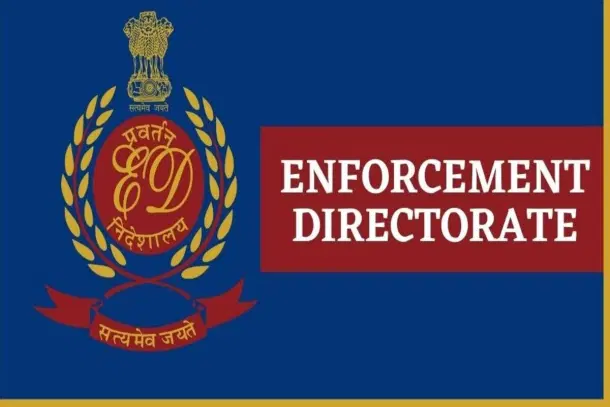News Brief
Low Conviction Rate In High-Profile Cases Prompts Enforcement Directorate To Revise Strategy, Focus Now On Money Laundering Act
Arjun Brij
Dec 23, 2024, 11:20 AM | Updated 11:20 AM IST
Save & read from anywhere!
Bookmark stories for easy access on any device or the Swarajya app.


Facing criticism by the opposition over its low conviction rate and recent court setbacks, the Enforcement Directorate (ED) has revised its approach to handling money laundering cases.
According to data shared by the Finance Ministry in the Rajya Sabha earlier this year, the ED secured convictions in only 42 cases over the last five years—just 4.6 per cent of the 911 cases in which prosecution complaints were filed.
ED officials believe that the low conviction rate is primarily due to the lengthy legal process, where courts first determine whether the alleged act qualifies as a predicate offence under the PMLA before examining the evidence.
This dismal conviction rate, coupled with Supreme Court rulings against the ED in high-profile cases, has prompted the agency to move away from relying solely on “criminal conspiracy” under Section 120B of the Indian Penal Code (IPC) as the “predicate offence.”
Instead, the ED will now ensure that such cases include offences explicitly covered under the Prevention of Money Laundering Act (PMLA), reported Indian Express.
According to their sources, ED Director Rahul Navin has issued instructions to officers on this revised strategy. The PMLA schedule includes nearly 150 offences, ranging from corruption and tax evasion to violations of the Wildlife Protection Act.
This change follows key Supreme Court rulings that Section 120B cannot be considered a standalone predicate offence under PMLA. A predicate offence refers to the primary criminal activity mentioned in an FIR registered by agencies like the CBI, state police, or the Income Tax Department, which forms the basis of ED’s money laundering cases.
“There is no point in facing setbacks in court after working hard on cases. The Supreme Court has made it clear that IPC Section 120B cannot be construed as a standalone predicate offence under the PMLA. What the apex court says is the law. So, instructions to that effect have been passed on,” a senior ED official said.
The Supreme Court’s November 2023 ruling in a case against Pavana Dibbur, related to a 2020 land deal, was pivotal. The court held that “The offence punishable under Section 120B of the IPC (criminal conspiracy) will become a scheduled offence only if the conspiracy alleged is of committing an offence which is specifically included in the schedule.”
The judgment, delivered by Justices Abhay Oka and Pankaj Mithal, further clarified, “…if the submissions of the learned Additional Solicitor General are accepted, the (PMLA) Schedule will become meaningless or redundant.”
This precedent influenced subsequent rulings, including the quashing of ED cases against Congress leader D K Shivakumar and retired IAS officer Anil Tuteja. In Shivakumar’s case, the court reiterated, “The question of whether 120B IPC can constitute a predicate standalone offence to enable ED to invoke PMLA has already been decided.”
To adapt, the ED is now ensuring its cases are tied to offences explicitly covered under PMLA. For instance, in Tuteja’s case, the ED refiled charges based on a fresh FIR invoking the Prevention of Corruption Act.
Arjun Brij is an Editorial Associate at Swarajya. He tweets at @arjun_brij





